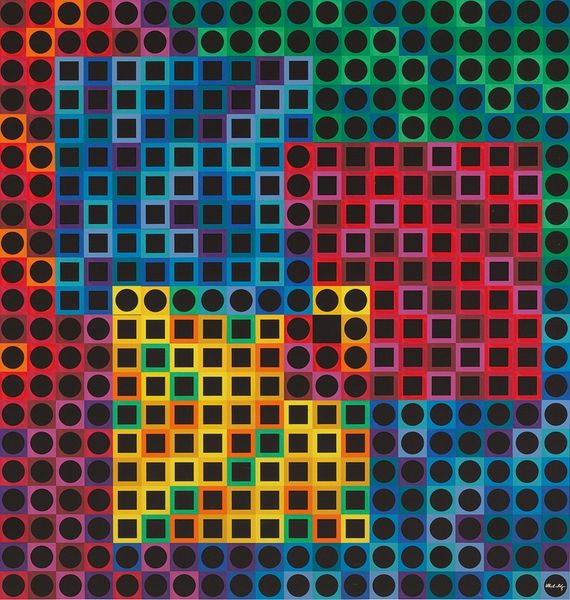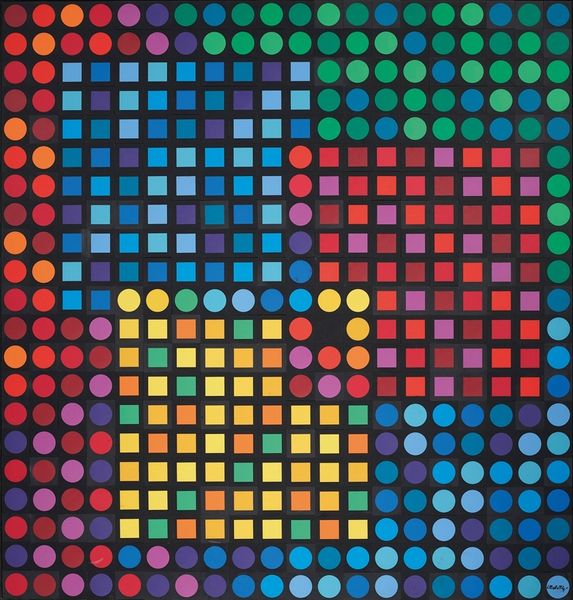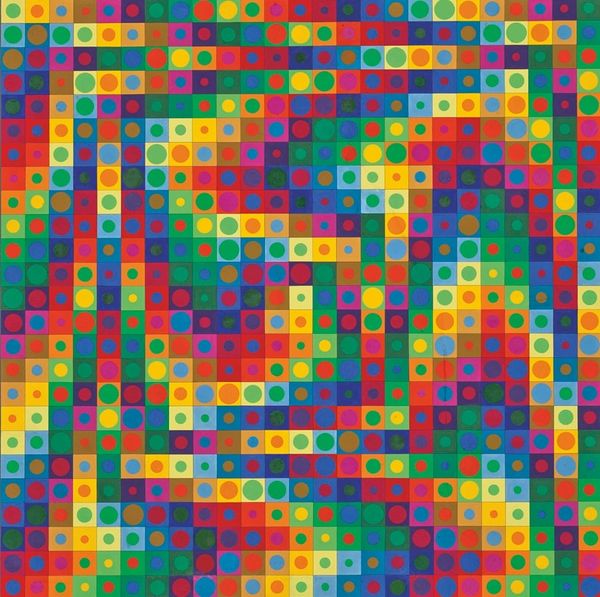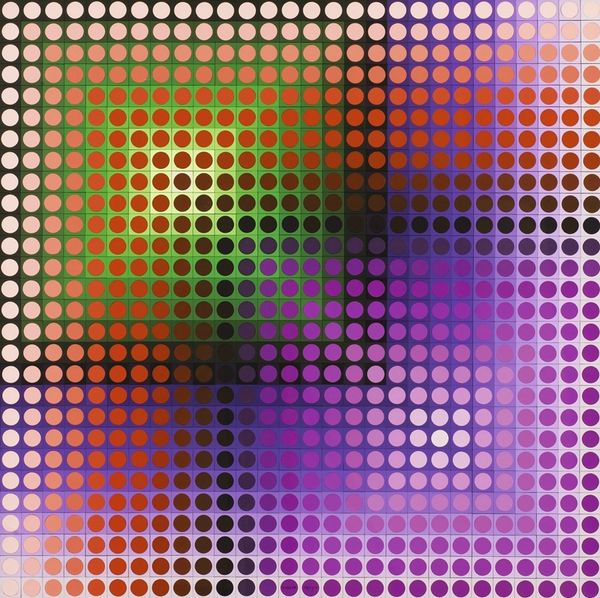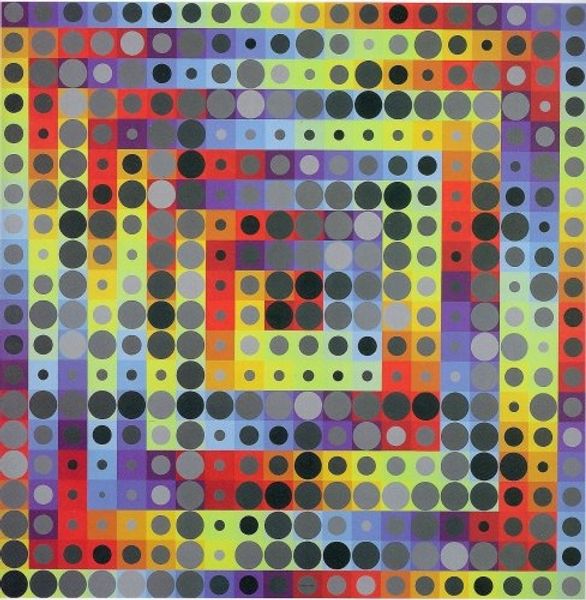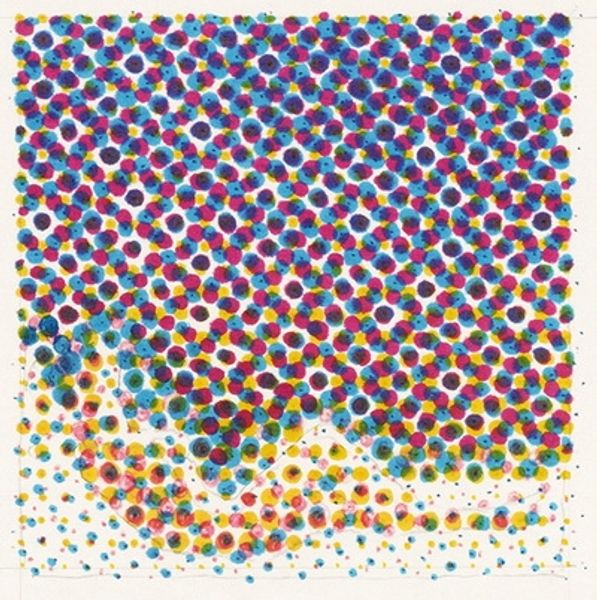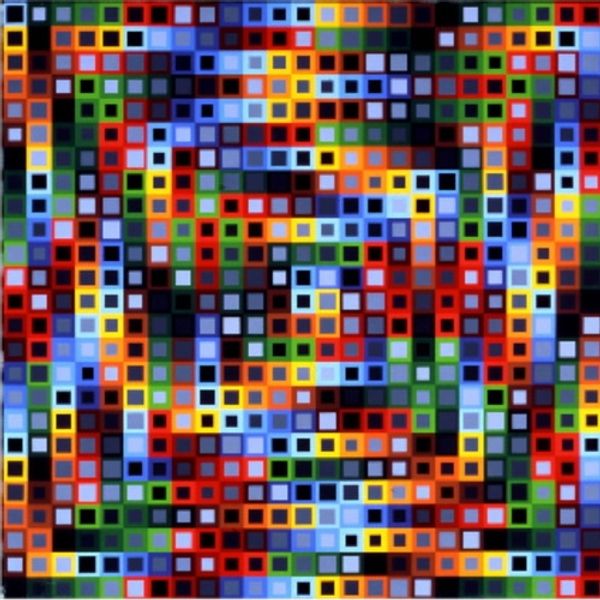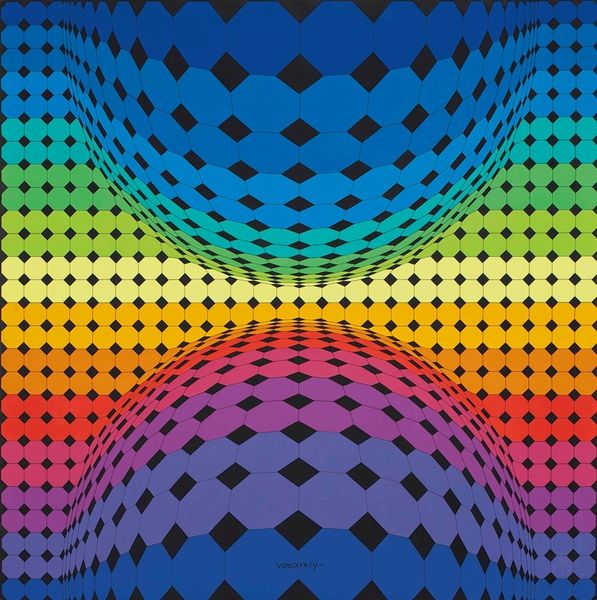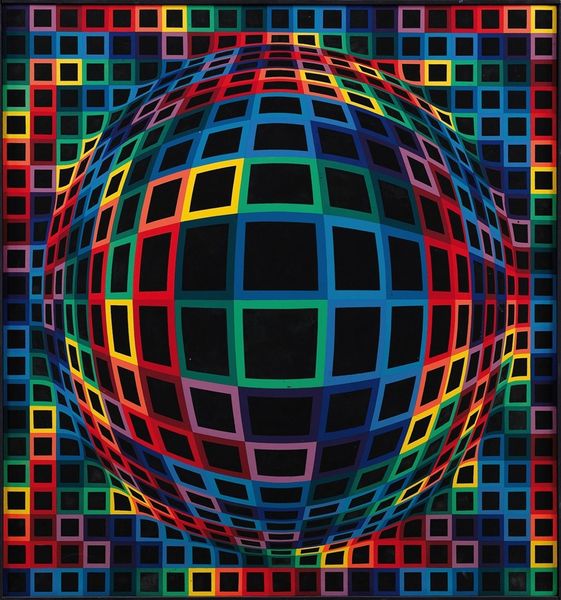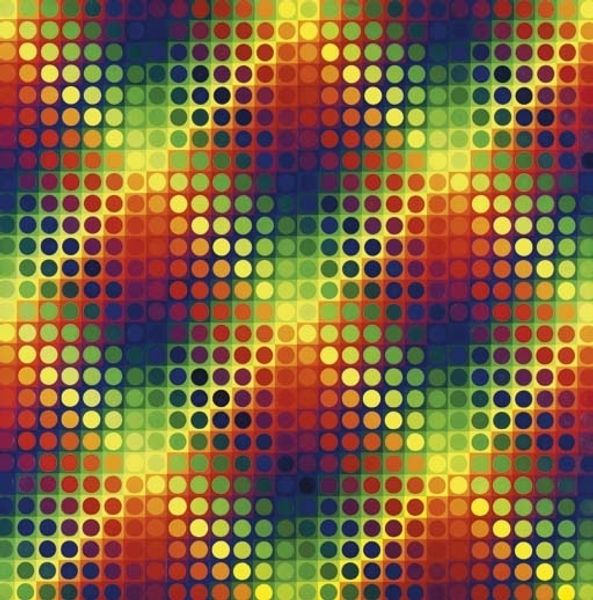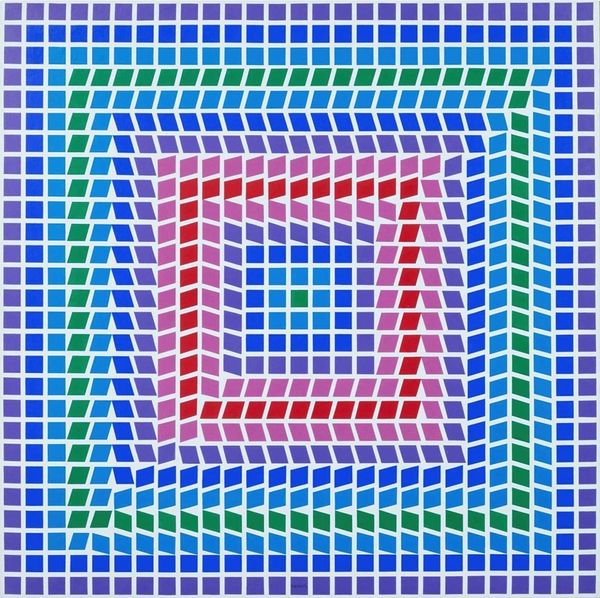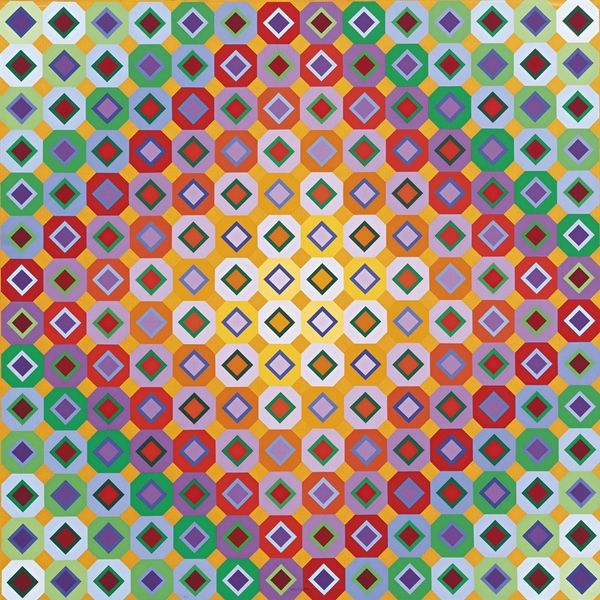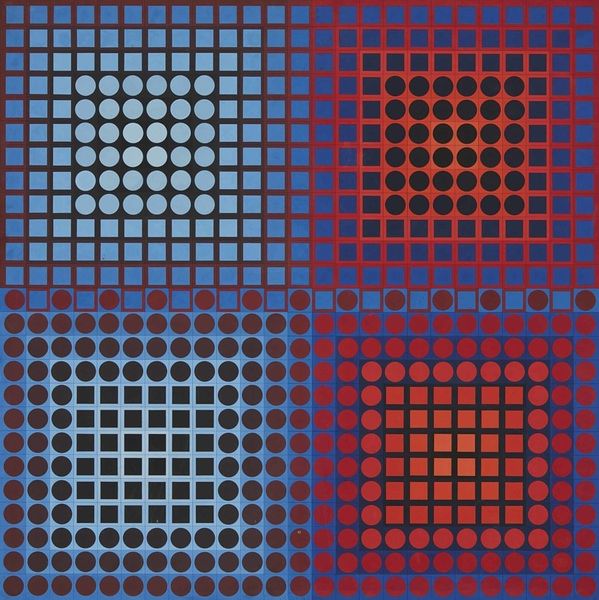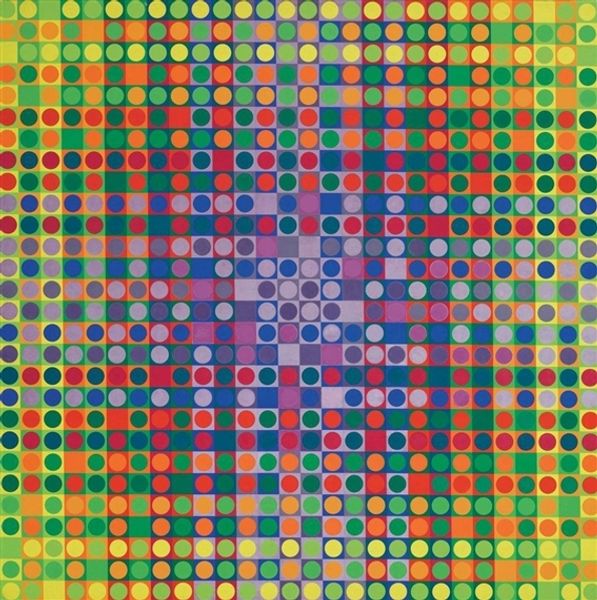
acrylic-paint
#
random pattern
#
op-art
#
acrylic-paint
#
abstract
#
geometric pattern
#
subtle pattern
#
abstract pattern
#
minimal pattern
#
organic pattern
#
geometric
#
geometric-abstraction
#
repetition of pattern
#
vertical pattern
#
abstraction
#
pattern repetition
#
layered pattern
Copyright: Modern Artists: Artvee
Editor: So, this is Victor Vasarely’s "Orion Blanc Positive," created in 1970 using acrylic paint. It’s a vibrant piece, and I am struck by the sheer amount of work that must have gone into painting all of those little squares and circles so precisely. How do you see it? Curator: Precisely! That repetition speaks volumes. Think about the context: 1970. Mass production was booming. Vasarely's process mimics industrial production, doesn't it? The hard-edged geometry, the consistent application of acrylic...it almost seems mechanically produced, despite being handmade. It challenges the traditional notion of the artist as a unique genius. Editor: So you're saying that the materials and process comment on consumerism? It’s less about individual expression and more about a… system? Curator: Absolutely. Acrylic itself, a relatively new material then, signals this shift. It was inexpensive, easily manipulated. He wasn't using traditional oil paints passed down through generations of masters. And consider the title: "Orion Blanc Positive." The industrial sounding language used to label a process with no hand craft. Editor: It’s interesting how the geometric shapes could be seen to refer to printed circuit boards or machine parts too. Curator: Precisely, It’s all connected. This connects his works to the rising importance of new material and industries on society and its art production in that time. Editor: I hadn’t thought of it that way, but looking at the work from the viewpoint of the artist labor helps it make more sense to me. Curator: And hopefully that reveals some underlying systems driving our interpretation. I like how, through this new lens, art becomes less like looking and more like discovering.
Comments
No comments
Be the first to comment and join the conversation on the ultimate creative platform.
